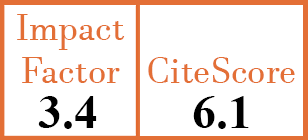Full Papers
Factors influencing the patient evaluation of injection experience with the SmartJect autoinjector in rheumatoid arthritis
H. Schulze-Koops1, R. Giacomelli2, W. Samborski3, S. Rednic4, M. Herold5, R. Yao6, M. Govoni7, N. Vastesaeger8, H.H. Weng9
- Division of Rheumatology, Department of Internal Medicine IV, University of Munich, Munich, Germany.
- University of L’Aquila, L’Aquila, Italy.
- Ortopedyczno-Rehabilitacyjny Szpital Kliniczny, Poznań, Wielkopolskie, Poland.
- University of Medicine and Pharmacy, Cluj-Napoca, Romania.
- Medical University of Innsbruck, Innsbruck, Austria.
- Merck & Co., Inc., Whitehouse Station, NJ, USA.
- MSD Italy, Rome, Italy.
- MSD Belgium, Brussels, Belgium.
- Merck & Co., Inc., Whitehouse Station, NJ, USA.
CER7744
2015 Vol.33, N°2
PI 0201, PF 0208
Full Papers
Free to view
(click on article PDF icon to read the article)
PMID: 25664404 [PubMed]
Received: 14/07/2014
Accepted : 01/12/2014
In Press: 29/01/2015
Published: 09/04/2015
Abstract
OBJECTIVES:
To evaluate factors influencing injection patterns and patient evaluations of an autoinjector device in biologic-naïve patients beginning golimumab (GLM) treatment.
METHODS:
GO-MORE was an open-label, multinational, prospective study in patients with active rheumatoid arthritis (RA) (28-joint disease activity score based on erythrocyte sedimentation rate [DAS28-ESR] ≥3.2). Patients injected 50 mg subcutaneous GLM once monthly for 6 months. Patients reported use preferences and autoinjector evaluations by questionnaire. Responses were analysed descriptively. Effects of patient variables were evaluated with chi-square tests or t-tests.
RESULTS:
Of 3,280 efficacy-evaluable patients, 67.7% self-injected with the autoinjector. Compared with patients who self-injected, patients who had someone else administer injections had greater baseline disease activity (e.g., DAS28-ESR 5.84 vs. 6.23, respectively), but not more tender/swollen joints in hands/wrists. Month 6 efficacy was greater for patients who self-injected. In those who self-injected, injection site (thigh [75.2%; 1,563/2,077], abdomen [17.4%; 363/2,077], upper arm [7.2%; 151/2,077]) was not associated with wrist swelling or tender/swollen joints in the hand used for injection. Autoinjector ratings were similar across injection sites, yet less pain/discomfort was associated with abdomen injection. Patient autoinjector ratings were favourable overall (e.g. ease of use, pain). Patients with baseline functional impairment had slightly less favourable ratings.
CONCLUSIONS:
Biologic-naïve patients who self-injected had less baseline disease activity and higher response rates than patients who did not self-inject. Although patients prefer to inject in the thigh, injection in the belly may be less painful. Most patients who self-injected had favourable autoinjector evaluations; patients with functional impairment had slightly less favourable ratings.


